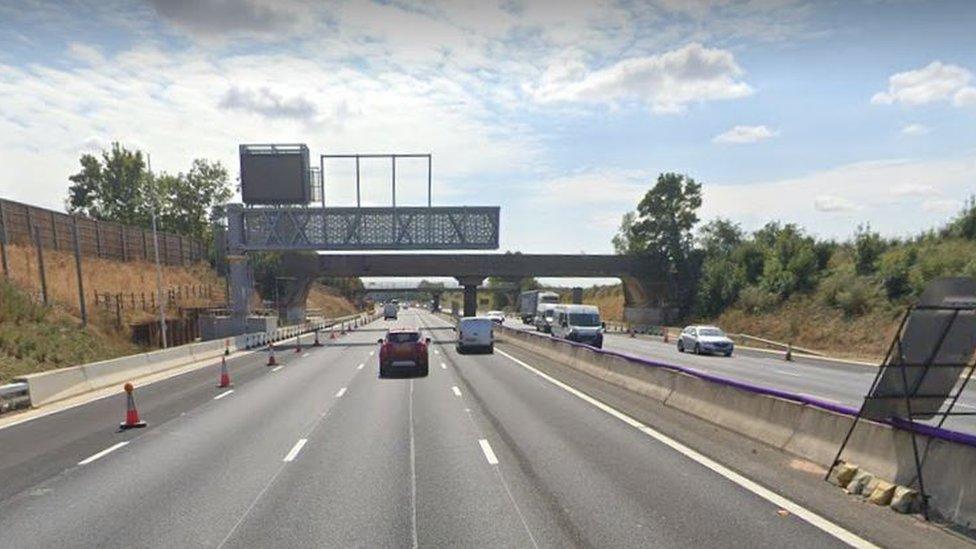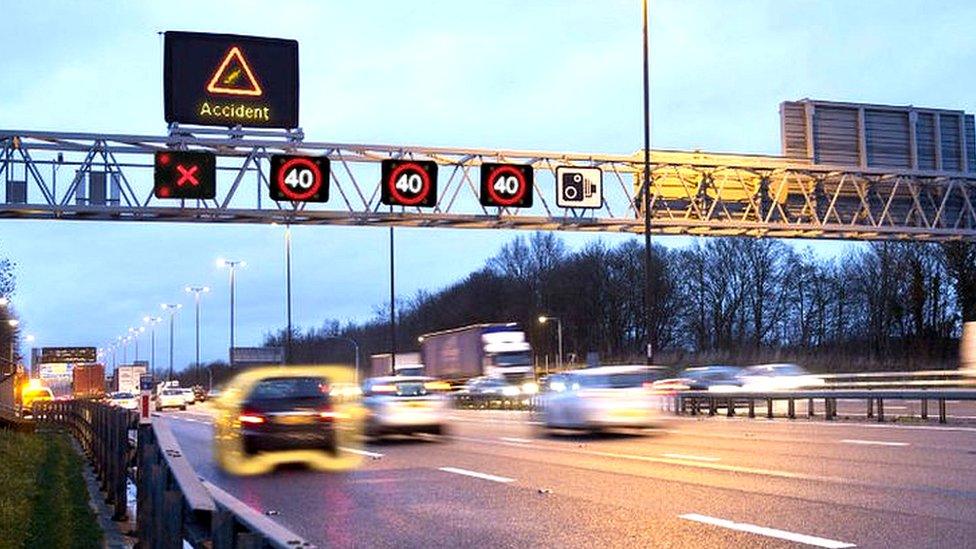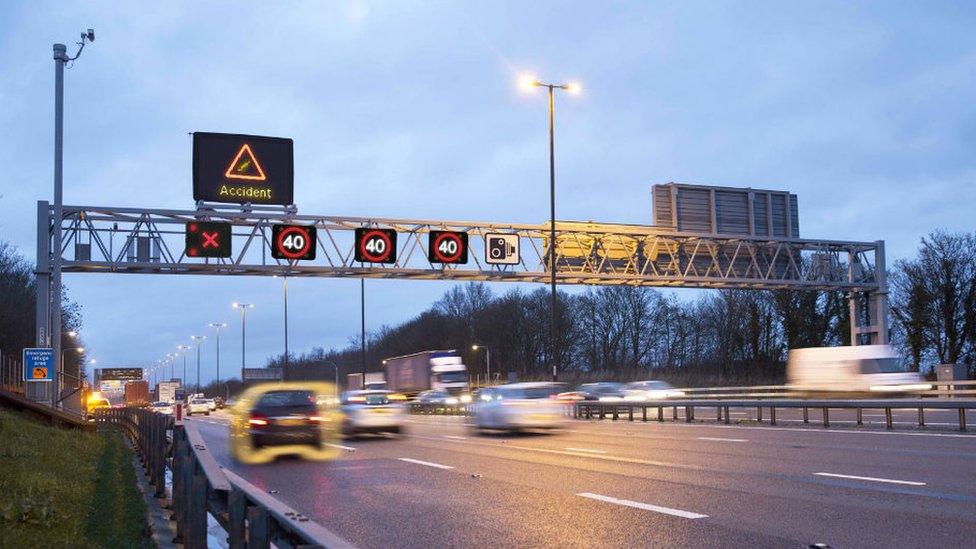Man's death on M1 shows risk of future smart motorway deaths, says coroner
- Published

A coroner has warned of a risk of future deaths after a lorry collided with cars on the hard shoulder of a smart motorway which was open to traffic
A man's death following a crash on a smart motorway might have been avoided if a hard shoulder was active, a coroner said.
David Levett, 53, sustained chest and head injuries after the stationary car he was in was hit on the M1 near Daventry, Northamptonshire in 2018.
The coroner warned of a risk of future deaths because the smart motorway had all lanes open to traffic.
National Highways said road safety was their "absolute priority".
Smart motorways are a stretch of road where technology is used to regulate traffic flow and ease congestion.
They also use the hard shoulder as an extra lane of traffic, which critics claim has led to road deaths.
Mr Levett was a rear seat passenger in a car on the M1 southbound which pulled over to aid another car which had broken down on 28 January 2018.
The vehicle was hit by a lorry, pushing it into the rear of the broken down car.
The lorry driver, a Turkish national, was charged with causing death by dangerous driving but is believed to have fled to Turkey before court proceedings began, Northamptonshire Police said.
A warrant remains out for his arrest, the force added.
Mr Levett was taken to hospital but died about a month later from his injuries.
In a prevention of future deaths report, external, Senior Coroner for Northamptonshire Anne Pember said the crash happened on an "all-lane-running smart motorway" meaning there "was nowhere for the driver of the first vehicle to park safely".
Earlier this week, the government announced plans to scrap new smart motorway plans due to cost and safety concerns.
National Highways Regional Director, Andrew Jinks, offered condolences to all involved and said: "We care about everyone who uses our roads and are continuing to make our network as safe as possible.
"We have committed £900m to safety improvements on the network, including building additional places to stop in an emergency and installing new technology to spot stopped vehicles."
He added that "safety on our roads remains an absolute priority" and the agency would respond to the coroner's concerns.

Find BBC News: East of England on Facebook, external, Instagram, external and Twitter, external. If you have a story suggestion email eastofenglandnews@bbc.co.uk, external
Related topics
- Published22 April 2024

- Published2 November 2021

- Published26 January 2020
